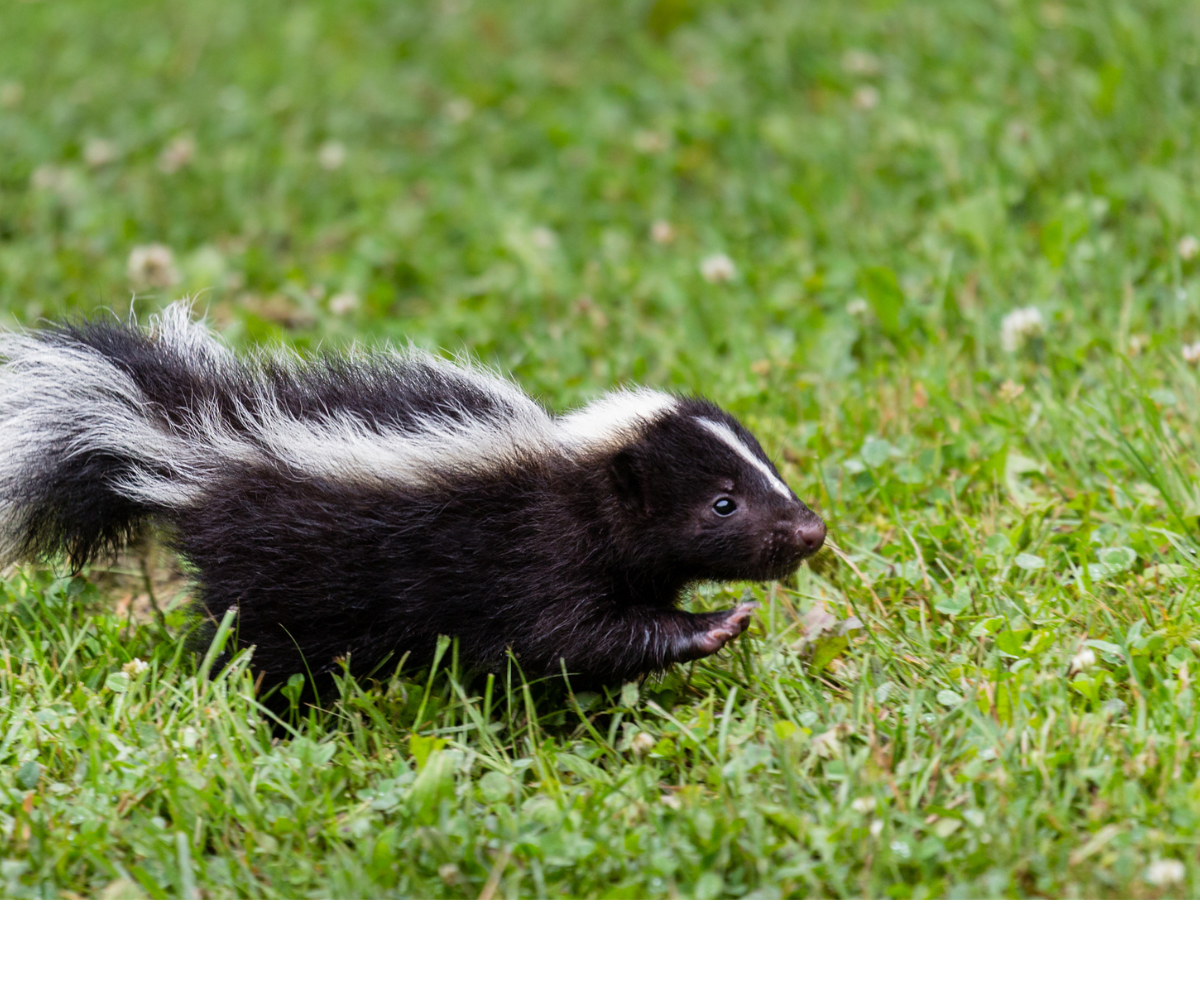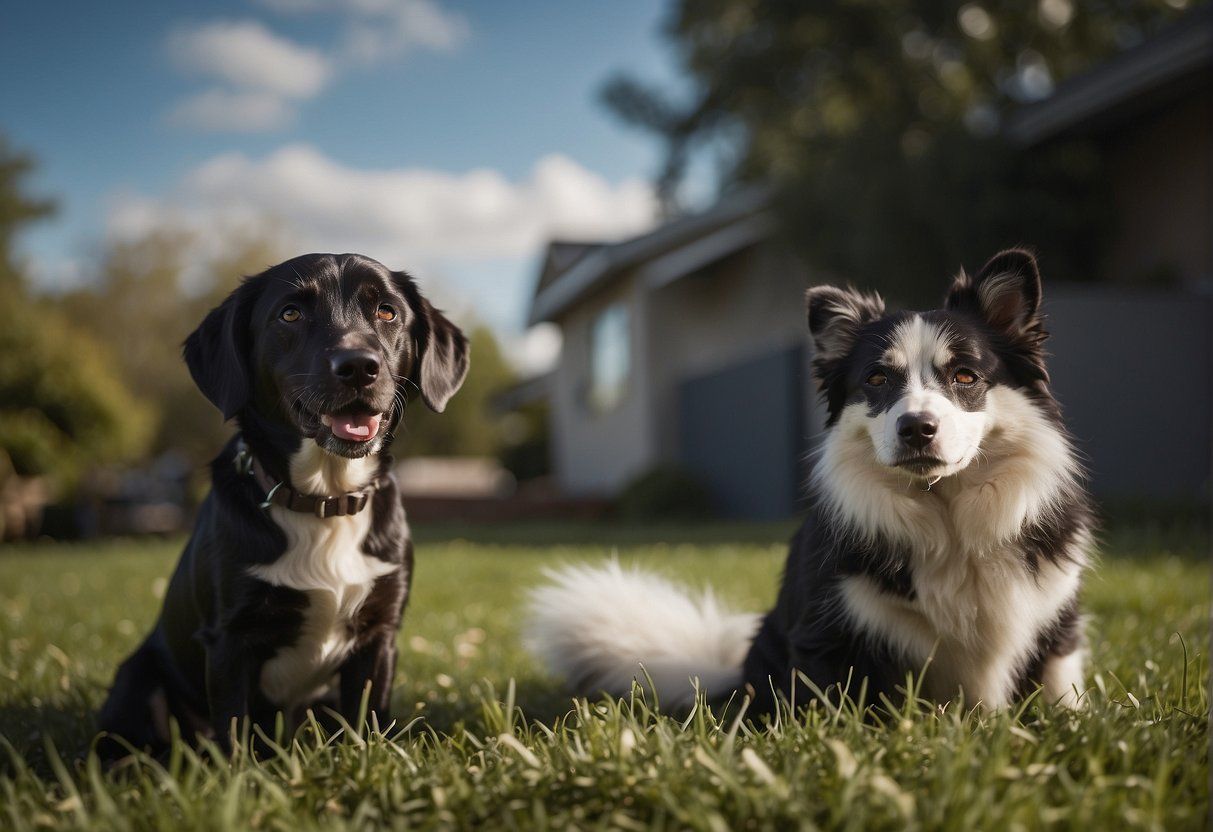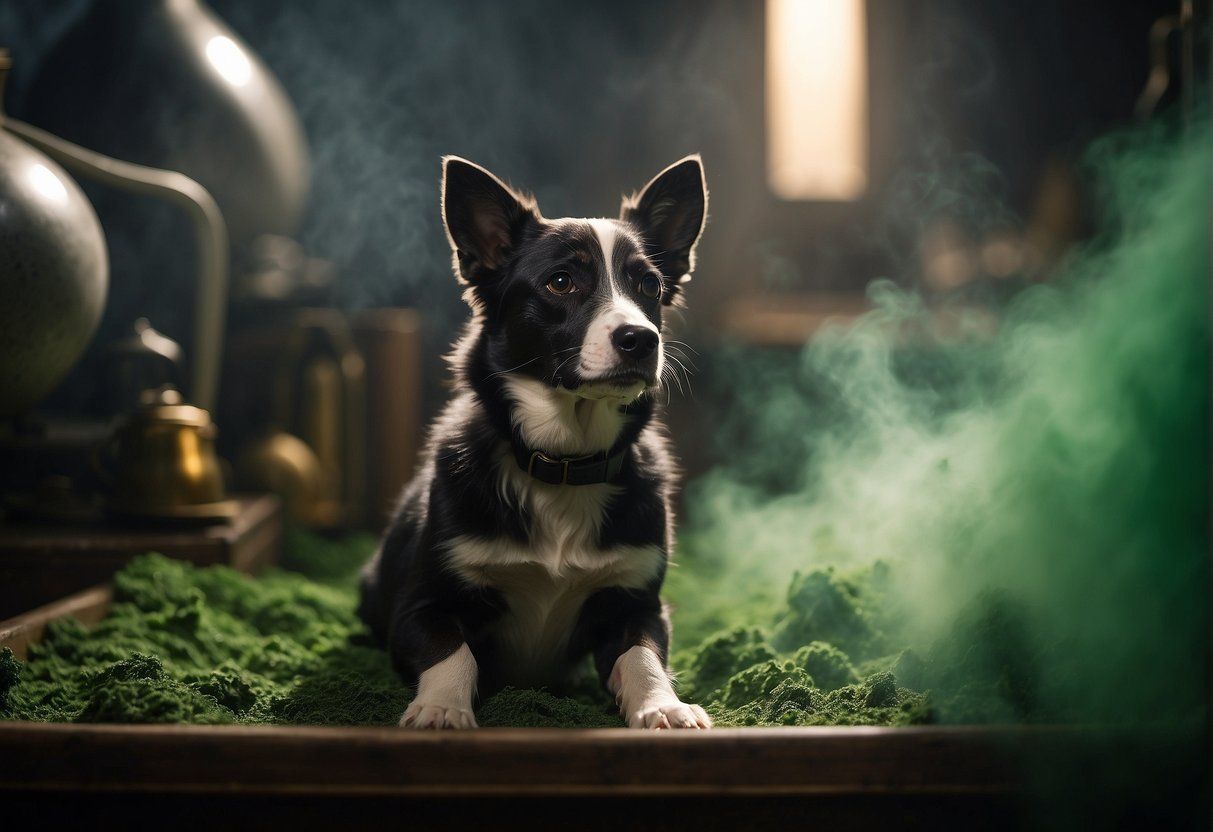Why Do My Dog’s Farts Smell Like Skunk?
Why Do My Dog’s Farts Smell Like Skunk?

Vet Reviewed

By: Sarah Hodgson
February 18, 2024
- Posted in Dogs
Table of Contents
Whether your dog's fart smells like skunk, rotten eggs, or even so bad there isn't a name for it you might be wondering why and how to stop it.
In this article we'll explore just that and what makes a dog's fart smell so bad that it smells like a skunk.
Let's dive in!
Why Does The Fart Smell So Bad Like Skunk?

When a dog's flatulence smells particularly skunky, it is usually due to the digestion process and what the dog has consumed. Diet plays a significant role in the odors of intestinal gas as the digestive system breaks down certain proteins and compounds.
- Sulfur-rich Foods: Dog diet often includes proteins that are high in sulfur. When these proteins are broken down in the intestines, the gas produced can carry a strong resemblance to skunk odor.
- Digestive Health: A dog's digestive system may have difficulty fully breaking down certain ingredients, thus creating more potent-smelling gas. Effective digestion is key to reducing strong odors.
- Bacterial Contribution: In the intestines, bacteria break down food, which can sometimes lead to the production of sulfuric compounds similar to the chemicals found in skunk spray.
For dog owners concerned with reducing such odors, monitoring and modifying the dog's diet is a straightforward approach. Introducing probiotics or adjusting protein sources may result in a notable decrease in foul-smelling flatulence. In some cases, persistent extremely foul odor might indicate an issue with the dog's digestive system and warrants a consultation with a veterinarian.
Common Causes of Skunk-like Farts
Skunk-like odor in a dog's gas can be alarming to pet owners, indicating that there might be an imbalance in their pet's digestive system. The following subsections explore the potential reasons for this distinct smell, emphasizing the impact of diet, gastrointestinal health, and bacterial harmony.
Dietary Factors
Dogs can develop skunk-like odors in their farts primarily due to their diet. This usually happens when they consume high-sulfur foods such as meat, eggs, and certain vegetables. These foods lead to the production of excess gas with a strong, skunk-like smell when broken down in the colon.
- Foods known to increase gas production:
- Broccoli
- Cauliflower
- Other cruciferous vegetables
Some dogs may also be lactose intolerant, and dairy products could result in excessive gas. Inclusion of new foods or changes in diet may lead to food intolerance or allergies, causing foul-smelling gas.
Gastrointestinal Disorders
Gastrointestinal issues may contribute to unpleasant odors in a dog’s farts. Disorders like inflammatory bowel disease or intestinal parasites can disrupt normal digestion, leading to excess gas. An inflamed colon may not process sulfur compounds efficiently, escalating their presence in a dog’s gas.
Bacterial Overgrowth and Infections
An imbalance in the gastrointestinal flora, specifically bacterial overgrowth, can alter the scent of a dog's gas. When beneficial bacteria are outnumbered, harmful bacteria might produce more sulfur compounds. Infections in the digestive tract can also cause a skunk-like odor due to the presence of certain pathogens.
- Supplements like probiotics may help restore the balance of good bacteria in the gut.
Dog’s Farts Smell Like Skunk? Here’s What To Do
When a dog's flatulence takes on a skunk-like odor, it signals a dietary or digestive issue. First, assess the dog's diet for high-sulfur foods, such as meats and certain vegetables, which contribute to malodorous gas.
Change in Diet:
- Gradually introduce low-sulfur, high-fiber foods.
- Include probiotics to aid digestion.
- Avoid table scraps and foods that are not designed for canine consumption.
Medical Assessment:
If diet alterations do not resolve the issue, a veterinarian should examine the dog. It may have gastrointestinal problems or infections affecting its digestion and causing the foul smell.
Exercise and Hydration:
- Encourage regular exercise to promote digestion.
- Provide ample fresh water to aid in metabolic processes.
Note
Remember, if a dog's farts consistently smell like a skunk, they should not be ignored. Owners should closely monitor their pet's diet and consult with a professional when necessary. Additionally, ruling out possible health issues with a veterinarian is crucial to ensure the well-being of the dog.
When Do I Need To Worry About My Dog’s Smelly Farts?

Occasional smelly farts in dogs are generally not a cause for concern and can be attributed to dietary changes or consumption of disagreeable food. However, pet owners should be alert for persistent and excessively smelly flatulence, as it can be indicative of health issues.
Signs that warrant concern and a veterinary consultation include:
- Persistent foul odor: Continuous episodes of very foul-smelling gas could suggest gastrointestinal problems.
- Increased frequency: A noticeable increase in the frequency of farts compared to the dog's normal behavior may point to digestive issues.
- Accompanying symptoms: Symptoms such as vomiting, diarrhea, loss of appetite, or visible distress in conjunction with smelly farts can be signs of an underlying health condition.
- Change in stool appearance: Blood or mucus in the stool, or a significant change in color or consistency, can signal a problem.
A dog's diet should be considered as a possible cause, where:
- Dietary intolerances or allergies can lead to excessive gas production.
- A sudden change in diet can upset the canine's digestive system.
Monitoring a dog's diet and gastrointestinal health is essential. A veterinary professional can provide guidance on proper dietary practices and rule out any serious health conditions if smelly farts persist despite dietary adjustments.
The Bottom Line
So there you have it, If a dog's fart has a particularly skunk-like odor, it could be due to a combination of dietary factors and digestive health. Certain foods that are high in sulfur such as meats, dairy, and cruciferous vegetables can contribute to foul-smelling gas. Digestive issues or imbalances in the gut microbiome can also lead to more potent odors.
So there's no need to be worried, just try to cover your nose if your dog's fart smell bad.

Subscribe to Petfluence!
Get updates on the latest posts and more from Petfluence straight to your inbox.